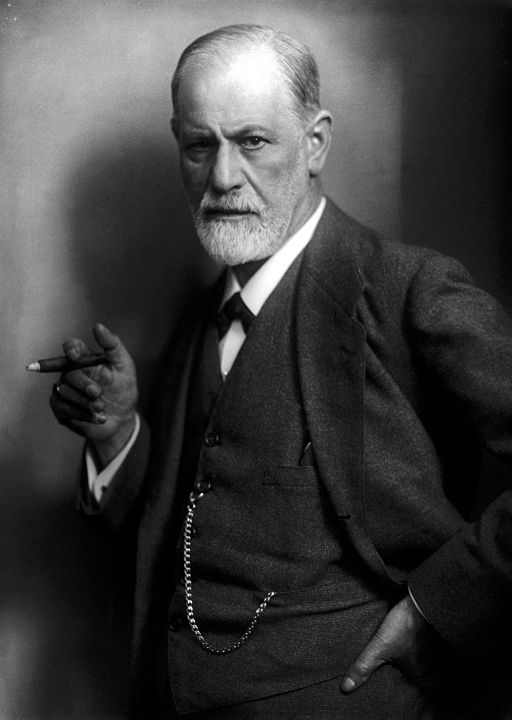by John Riley, leading Putting the Post in Post-Modernism at Toronto Pursuits 2020

Friedrich Nietzsche was a very, very sick man for the last twenty years of his life. His body racked by the long-term effects of dysentery and diphtheria along with brain illness consistent with syphilis, he produced no work after age 44, by then his mind completely lost to mental disease.
Beyond Good and Evil came about three years before his collapse. The ideas contained here were still cutting edge but the delivery was “less flamboyant and more systematic.” Apparently, this accommodation of scholarly habits was unsuccessful. His translator, Walter Kaufmann, cites a letter where Nietzsche expressed bitter disappointment in having only 113 of the 300 first edition copies sold—copies he had published at his expense: “Alas, one simply does not want my literature…”
There is very little evidence to suggest that Nietzsche considered changing his thinking in order to make his writing more palatable to the general public. If anything, Nietzsche was afraid that his ideas had lost their edginess, lamenting at the end of Beyond Good and Evil: “Alas, what are you after all, my written and painted thoughts…you have already taken off your novelty…you look so immortal, so pathetically decent, so dull.” Immortality to Nietzsche is a banality. Excitement lives only in the strange and the revolutionary…but it doesn’t live for long without adherents. Nietzsche must have had a recognition that if he could conjure up enough subversion, his philosophy could gain a temporary following before he and his devotees were all dragged into the muck of conventional wisdom.

Sigmund Freud also lived his final years enduring great pain and suffering from a cancerous growth on his palate. Like Nietzsche, Freud’s lifetime of radical ideas spawned great controversy, however, Freud experienced adulation as well as opposition to his thinking on a far greater scale than did Nietzsche during his life. Freud’s biographer, Peter Gay, claims that by the 1920s Freud had become “a household word.” Freud had received so much notice, in fact, that he offered the rock star’s complaint that “he detested the sensationalized attention the popular press gave him.” If Freud was unmoved by popular opinion, there was one group whose acceptance he sought throughout his life: the scientific community.
At his core, Sigmund Freud was a scientist. He wanted his extravagant concepts to meet the requirements of the scientific method. He insisted his ideas were proven, but as the decades rolled by an increasing number of psychiatrists believed that Freud provided insufficient evidence to support his theories and that he did not address the many exceptions and counterarguments raised by them. After his death, skepticism about Freud’s approach grew stronger and the clinical application of his concepts began to diminish. Today, Freud has little relevance in the areas where he most valued legitimacy, and much greater influence in areas where he had very little at stake, professionally speaking. If he knew he was a revolutionary, why did Freud measure his thinking against such a hostile standard? Why did he want the approval of a science that had for centuries ignored the import of sex drive and familial relations on human behavior?

Both Nietzsche and Freud were cold-blooded detectives investigating the human psyche. They examined clues that others ignored, allowing for no easy acceptance of ideals about metaphysics or the power of human reason. Jacques Derrida traveled to a similar destination as these two men, but he got there using a different approach. Derrida, more than Nietzsche or Freud, is highly sensitive to the possibilities of language and to how other thinkers subverted language in a way that is misleading and authoritarian. His work is to deconstruct their ideas by employing a non-linear method of argument that displays a “predilection for paradox,” a phrase Derrida used in a final interview he gave to Le Monde. The result of his work was a fifty-year civil war in the academic world that still rages on. There are many prominent intellectuals today who would hold that Derrida’s work is not simply obtuse, it is deeply cynical and also trivial to the point of worthless. His intellectual enemies seem far more searing in their judgments about him than were either Nietzsche’s or Freud’s.
As he was approaching the end of his life, Derrida also did not seem to make concessions to being understood by the masses or accepted by the universities. In his last interview, he justified remaining “incorruptible” (a word used by Helene Cixous to coin a generation of French post-structuralist philosophers). Derrida warned against allowing “public opinion” to intimidate thinkers “into simplifying or repressing” their ideas. Yet Derrida, more than any other radical thinker, captured a large amount of public attention by employing the very esoteric methods he felt were threatened by the public. Whether by good scholarship or good luck, Derrida had become widely known, loved and detested by the end of the 1960s. The more impenetrable his prose, the larger the group of acolytes and attackers became. Talk about a predilection for paradox!
The radical wants to be heard, but does he or she care to be understood? Should we see the confusion and the general lack of public acceptance as a sign that the thinker is a visionary or an elitist crank destined for the trash heap of obscurity? Derrida parlayed his obscure philosophy into a high degree of notoriety. In other words, he got famous for saying things that few people understood. Freud’s fame arrived during his life, but not as recognition from the community he wanted most to give him credibility. And Nietzsche got his recognition only after being misunderstood and misappropriated by others for decades after his passing. Does the person who authors the startling and strange really care about finding an audience? It’s a question for our seminar. See you there!
— John
Image credit: “Jacques Derrida, Painted Portrait”, Thierry Ehrmann on Flickr


